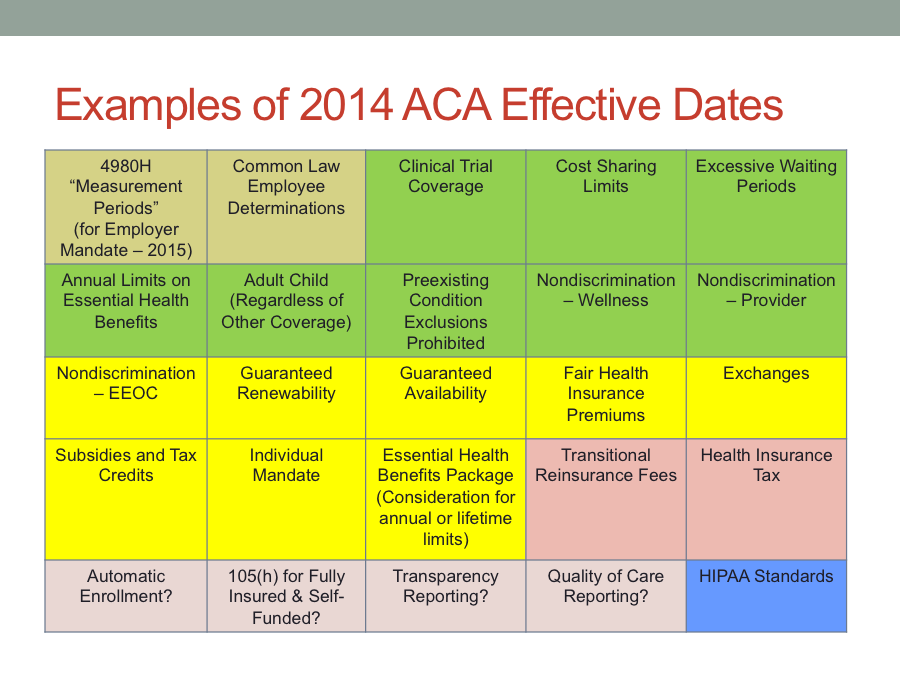It is sometimes said that "no good deed goes unpunished." When we look at the context of employer wellness, I am reminded of this point, especially in light of recent federal caselaw on this topic.
Employer provided wellness is seen as a good thing, often designed to improve health and to provide an added benefit from an employer to an employee. Unfortunately, the legal landscape when it comes to wellness was drafted years ago and we are left with a minefield of compliance hurdles for entities to remember when designing their wellness program. The legal issues include but are not limited to federal and state privacy requirements, nondiscrimination, the Americans with Disabilities Act (ADA), the Genetic Information Nondiscrimination Act (GINA), the Affordable Care Act (ACA), the Employee Retirement Income Security Act (ERISA), Consolidated Omnibus Budget Reconciliation Act (COBRA), and federal and state tax laws to name a few.
Federal caselaw on this topic can also remind us that fixing improperly designed wellness programs can be difficult with a broad array of penalties available to plaintiffs or for government enforcement actions. As wellness is often tied to a major health plan by the employer, the health plan compliance requirements can come into play. Some recent litigation on this point provides just some of the remedies that may be required with improperly run wellness programs:
1. Awarding attorneys fees, litigation expenses and costs. This is an important concern for many ERISA cases and leaves open the possibility that even a small issue may entail these large costs when dealing with employee benefits.
2. Correcting claims over multiple years. Employers may be forced to pay for claims going back many years or to re-adjudicate past claims.
3. Reimbursements over multiple years. Separate than a claim for services, Employers may be forced to make injured parties whole for their loss (e.g. repaying a tobacco surcharge) going back many years.
4. Disgorgement of unjust enrichment or profits. Employers may be required to undue any unjust enrichment or profits resulting from the conduct determined out of compliance. Courts struggle with determining this point but it is allowed and requested by plaintiffs.
5. Awarding interest. Employers may be forced to make injured parties whole for their loss including interest going back many years.
6. Independent Fiduciary. Employers may be forced to pay reasonable costs and expenses of an independent fiduciary to re-adjudicate claims or correct errors.
7. Injunction. Employers may be stopped from further actions that impose compliance concerns. ERISA can even allow for the removal of "fiduciaries" preventing them from making decisions over the plan.
8. Penalties and fees. Several penalties and fees may exist with improperly run wellness including fines ranging from $100+ per day for each affected individual depending on the compliance topic or penalties for improper tax reporting. Yes, that employer provided FitBit, cash, or gym membership reimbursement under the wellness program can be taxable (see IRS Chief Counsel Memorandum here discussing cash or cash like wellness incentives). Other federal penalties and fees can even include damage for emotional harm or punitive damages (see EEOC guidance on employment discrimination including the American Disabilities Act or ADA here). To make matters worse, some penalties are considered excise taxes which may not be tax deductible and ERISA fiduciaries can be personally liable for breaching their duties under the plan.
9. Other Relief. Courts are given broad discretion to undue wrongs in ERISA related cases, including making an employer pay for a benefit that did not exist for the plaintiff. In one recent federal case, the employer did not provide a Summary Plan Description required under ERISA to inform participants of a benefit. In that case, the court awarded the full benefit to the claimant when the benefit was later needed under an "equitable relief" theory. See Snitselaar v. Unum Life Ins. Co. of America, No. 17-014 (N.D. Iowa Jan. 22, 2019).
10. Brand Impact. Finally, entities should always consider the impact on your business name for improper wellness compliance. Sometimes, this is the worst and most punitive of all the wrongs and the most difficult to repair. It can take years to build a brand, but a moment to tarnish it.
Employer wellness remains a complicated area for employers, health plans, vendors, and insurers. Entities should tread carefully--what may be seen a small wellness program can have drastic impact on your brand or result in damages spanning multiple years or involve corrected tax returns. Entities should also consider who is liable in their contracts or service agreements for compliance but some harms like brand impact or lost trust of your employees are difficult to remedy.


